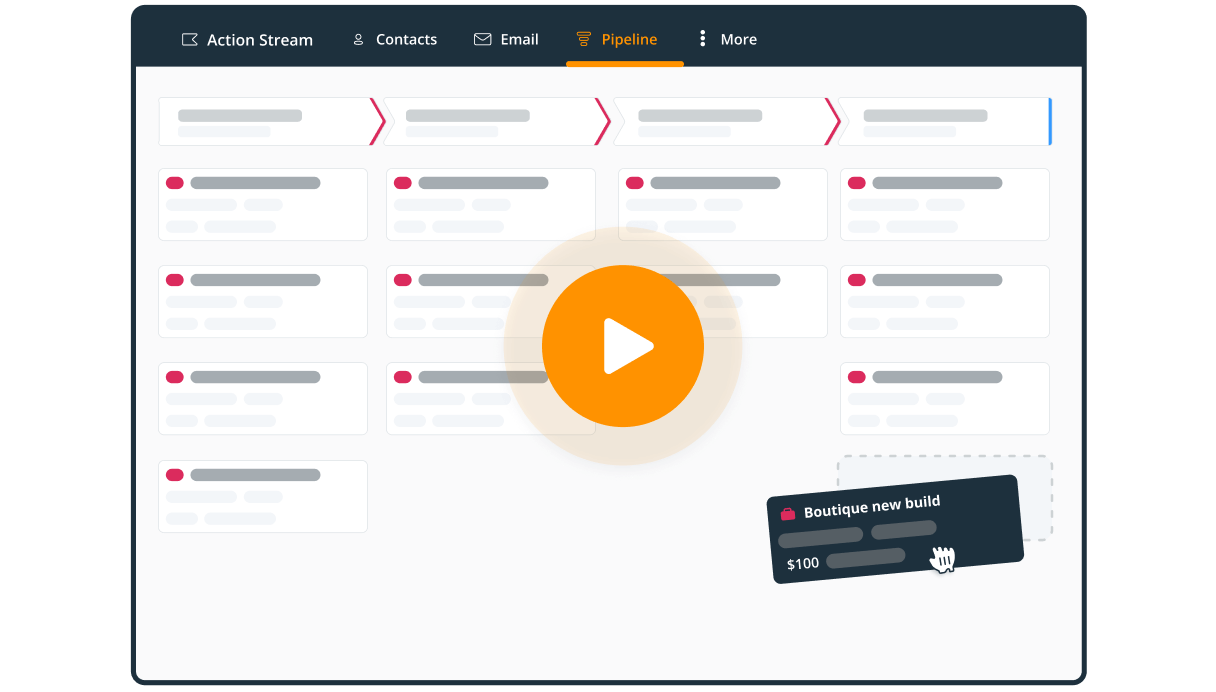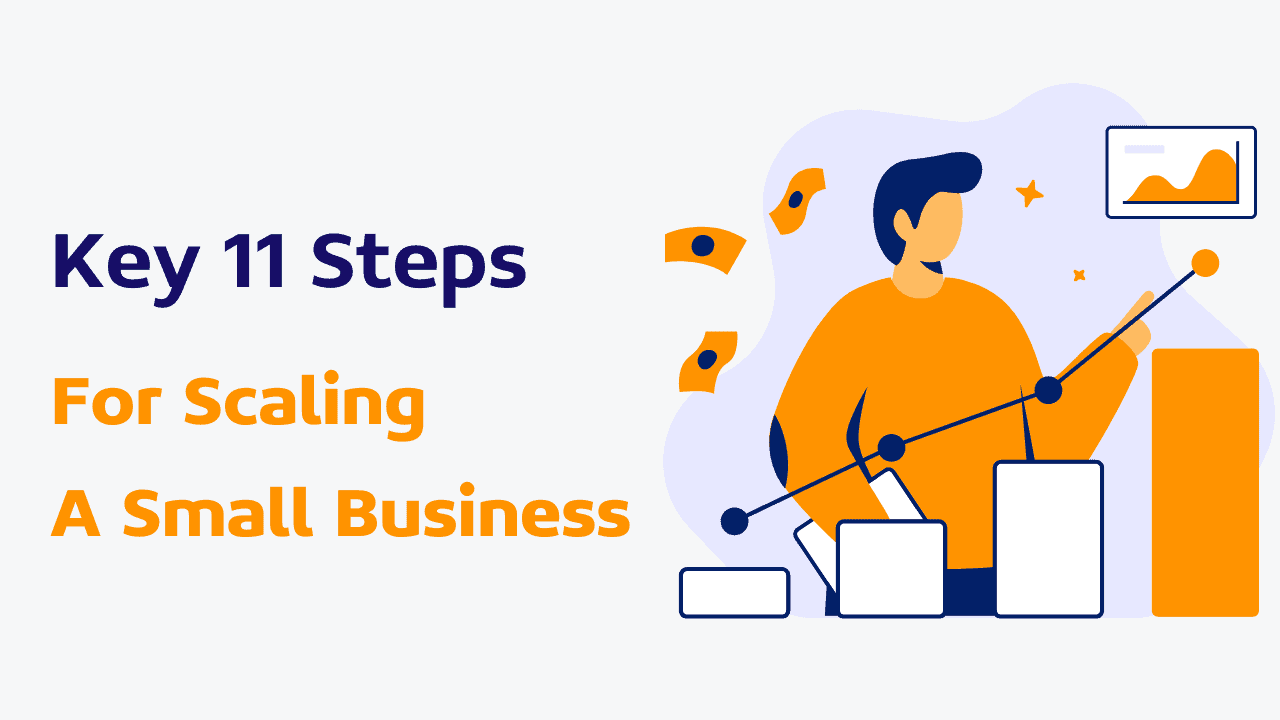

Intelligent sales: What is it and how to implement in a small business

Intelligent sales is an approach to sales enhanced by advanced data analytics.
It’s no wonder that intelligent sales are widely used by enterprises and large organizations that have loads of data. The more data you have, the more you benefit from intelligent sales with their predictive analytics models and automated lead scoring.
But small businesses can also use intelligent sales in their processes.
While it’s true that small and medium-sized companies don’t need as much automation as big organizations do, even local and one-person businesses can leverage the power of intelligent sales.
In this blog post, we’ll show how.
What is intelligent sales?
To put it simply, intelligent sales is a sales approach where a business uses advanced machine learning algorithms to process massive amounts of data for several reasons:
— predict customer behaviors,
— personalize interactions,
— improve sales processes,
— automate some parts of the decision-making process.
Although not every business has very large data sets to justify using complex predictive models, every business has room for some sort of automation and efficiency gains.
So in its simplest form, intelligent sales is an approach to sales that helps maximize efficiency and make smarter business decisions without losing personal touch.
Intelligent sales for small businesses
If you work for a small business or you’re a small business owner, here is some good news: intelligent sales can be applied in a small business too.
While the scale and implementation might differ across businesses and industries, the goal of intelligent sales remains the same: to enhance sales strategies using the power of technology (not necessarily AI).
In other words, intelligent sales is a spectrum: you can determine where you are on this spectrum.
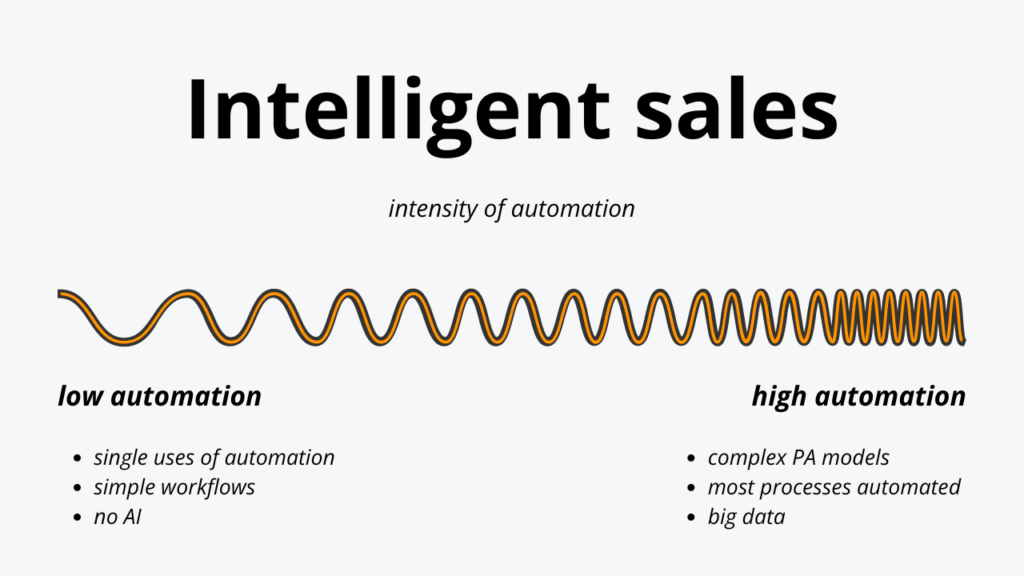
To illustrate how an intelligent sales approach works in a small business, let’s imagine a small store called Flowerland.
The owner, Sarah, has been running this family business for many years. It’s one of a few flower shops in her area. Sarah’s business is doing really well and she has many customers to serve but not millions to justify an investment into Salesforce.

Without even realizing it, Sarah is already doing intelligent sales but on a smaller scale compared to large corporations.
Let’s have a look at what exactly Sarah is doing.
1. Proactivity
In a small business, the data collection process is very different from the one in a large enterprise.
While large enterprises collect a lot of data points, small businesses usually focus only on the most essential ones. They also choose a personal approach to every client over an automated drip campaign.
So as a small business owner, Sarah values first and foremost a proactive approach to sales. What’s not intelligent about it?
Instead of waiting for her clients to reach out to her, she reaches out to them first, checks in regularly and makes sure that they are happy with the service and their latest order.
This proactive approach helps her build and maintain long-term relationships with clients, increase repeat business, and, consequently, gain efficiency across the whole sales cycle.
2. Practical tools
Contrary to large enterprises, Sarah doesn’t have many resources. She’s a sole business owner with a personal assistant and a delivery driver.
Taking into account the size of her team and the scope of her business operations, Sarah was never looking for a over-complicated tool with a steep learning curve. Her business is agile, so she needs an agile tool too.
For large organizations, intelligent sales often come together with extensive admin features. Big companies need a lot of admin because there’s a lot of people to manage. Without a proper admin-focused tool, information gets easily lost.
But this is not true for a small business. For small businesses, the focus should be on taking action rather than managing admin tasks. The size of the team and the scope of their operations doesn’t justify investment into a complex tool.
So instead of getting bogged down by complex analytics, Sarah’s intelligent sales approach is about choosing simple tools that help her save time and optimize operations.
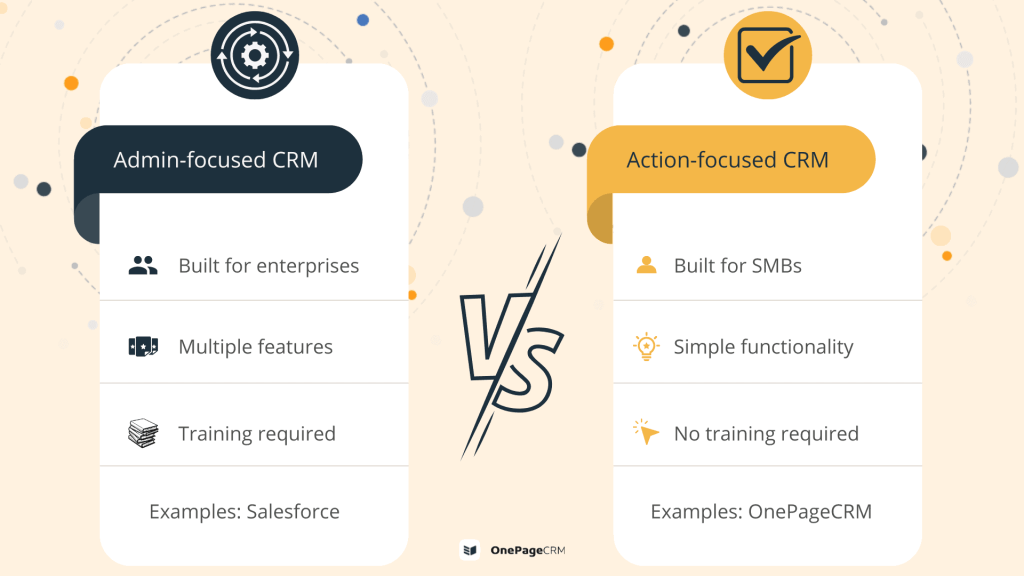
3. Simple automation
In a small business, everyone wears multiple hats, and no one gets away with having just one role. Since Sarah doesn’t have a big team, she looks for ways to automate as much as possible and free up her team’s time for value-add activities.
Sarah doesn’t have millions of website visitors every month so she correctly assumed that there was no need to keep a very detailed track of customer behavior. Her customers won’t appreciate receiving a super-scustomized drip campaign depending on where they clicked on her website.
That’s why Sarah looks for other efficiency gains that will yield better results.
When it comes to automation in a small business, the Pareto principle holds as true as ever: 20% of automation can yield 80% of improvements.
Here are a few tasks that Sarah automated in her small business:
- Contact updates. Each time she updates her Pending deal to Won in her CRM, the associated contact’s status automatically changes from Lead to Customer. This way, she doesn’t need to update them manually.
- Reminder notifications. Since Sarah’s personal assistant is quite new (she hired her a month ago), Sarah added a few automatic reminders in the CRM system. For example, when an assistant adds a new contact to the CRM, there’s a pop-up notification with a reminder: “Please differentiate between work and personal email addresses”. In this case, Sarah doesn’t need to manually double-check all new contacts.
- Automated emails. Sarah also added automated thank-you emails to her CRM. Each time she completes an order (closes a deal), an automated email is sent to her new customer.
That’s how intelligent sales manifest in a small business. It’s not about the scope of automation but rather about the impact it has on your bottom line.
4. AI-powered sales route planner
James, Sarah’s employee, delivers orders in the neighbourhood.

There are days when he has around 10 different orders. To easily navigate between customers, he uses a sales route planner that maps the most efficient route to get from one customer to another during the day.
The AI-powered sales route planner that James uses shows the most up-to-date traffic data and calculate the approximate time for reaching each destination.
By optimizing delivery routes, James can reduce the time spent on the road, allowing him to complete more deliveries in a day with less stress and fuel consumption. This saves money on operational costs and improves customer satisfaction.
Back to the point made earlier in this article: intelligent sales are primarily about efficiency gains. Even if a small business uses AI to a limited extent, that’s still enough to see improvements.
On the contrary, over-optimizing sales processes can lead to lower customer satisfaction. One of the reasons why many customers prefer to deal with a small business rather than a global franchise is the quality of products and service.
That’s why Sarah looks for a balance between automation and personal touch.
5. Business card scanner
As a flower shop owner, Sarah often attends trade shows, expos, and events related to her industry.
Sarah sources new suppliers, growers, and vendors at wholesale flower markets and stays updated on trends at trade shows where she also learns about new display techniques. For a flower shop owner, wedding fairs present many opportunities to connect with brides-to-be.
At all of these events, Sarah works tirelessly, collecting business cards and making connections that will help her grow her floral business in the long run.
An intelligent business card scanner integrated with her sales CRM saves Sarah a lot of time.
Instead of manually inputting contacts one by one, she snaps pictures of the collected business cards and has new contacts automatically created in her CRM. Sarah can then start nurturing those contacts with personalized follow-ups and promotions.
6. Fast lead capture
Intelligent sales are not always about doing tasks at scale. Depending on your business model, they can also be about optimizing the process that you already have.
As we mentioned earlier, intelligent sales are a spectrum.
Sarah understands the importance of building a strong customer base, so she uses a free lead capture tool to gather contact information from online pages, such as local business directories and social media platforms. She doesn’t need to pay for a data scraping tool because she serves only local customers so her lead capture approach is very different from that of a larger organization.
That’s why Sarah uses Lead Clipper. This lead capture tool automatically creates new contacts in her CRM, so she doesn’t need to do manual data entry.
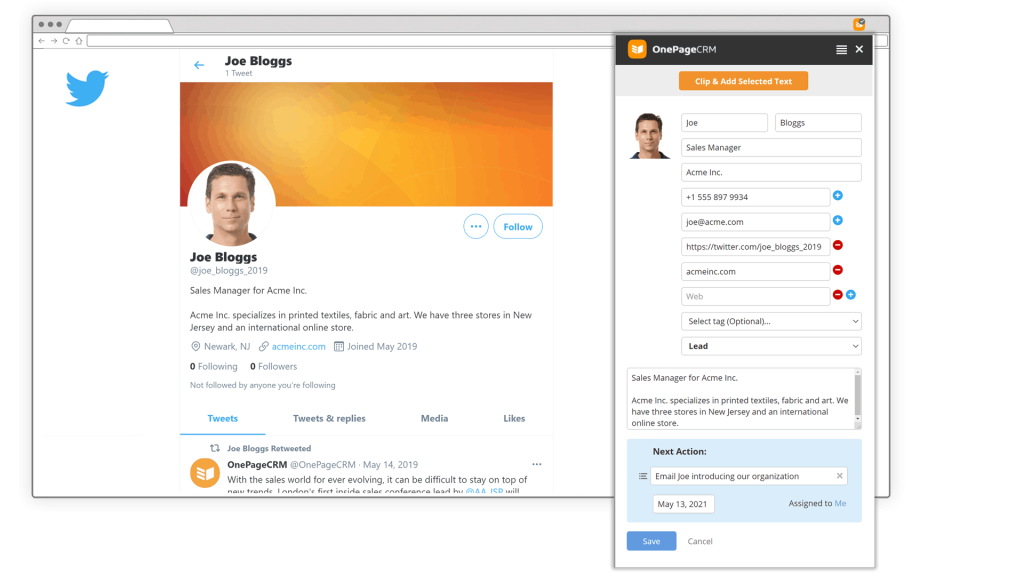
7. Single source of truth
To maintain a comprehensive view of her business operations, Sarah integrates her CRM with other tools she uses, such as her accounting software and inventory management system.
These integrations allow her to see all relevant customer and sales data in her CRM that acts as a single source of truth for her business.
She doesn’t need to share access to QuickBooks, the accounting software she uses, with her personal assistant. Instead, she can connect her CRM and QuickBooks—and her assistant will see all past invoices associated with customers right inside the CRM.
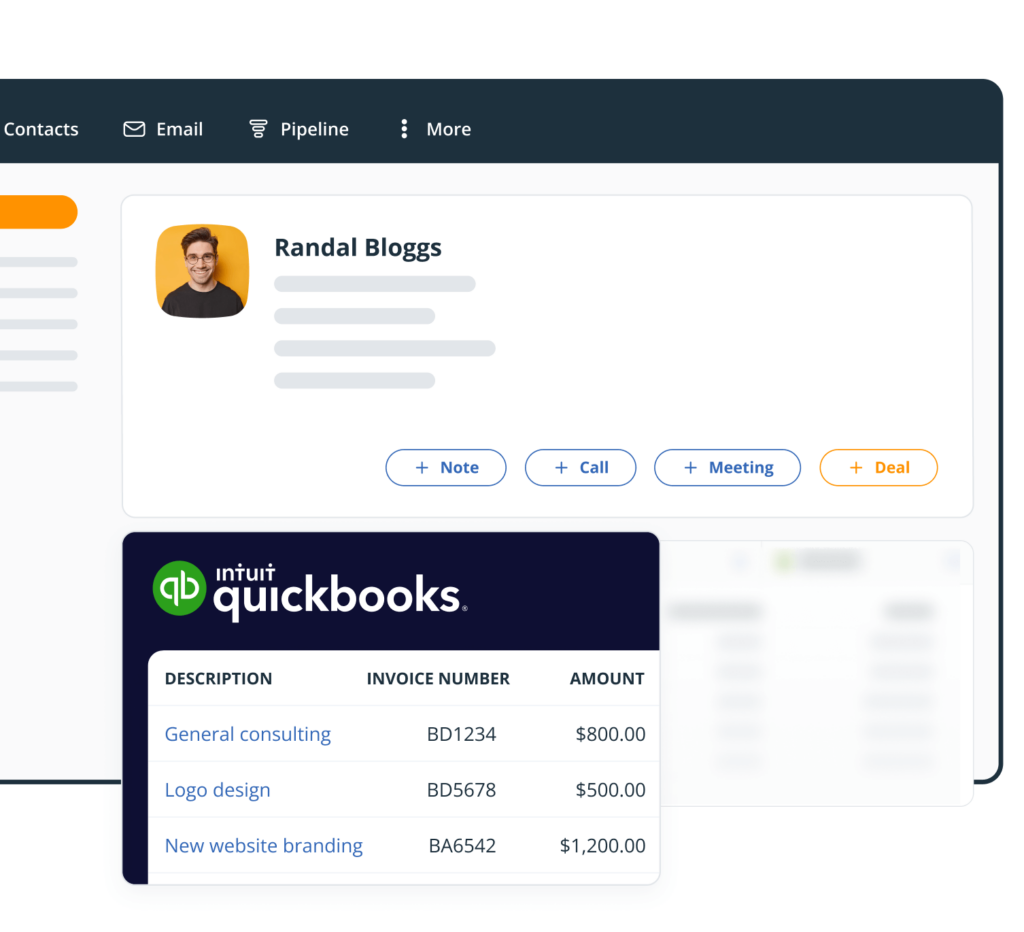
It’s like having a cupboard with a glass door. Sarah and her team can easily see what’s on each shelf without even taking it out for closer observation. This transparency and easy access to information helps Sarah gain even more efficiency.
Intelligent sales work in small business too
By adapting intelligent sales to her small business, Sarah and her team can work more efficiently, stay organized, and provide a better overall experience for their customers.
The proactive approach keeps them focused on taking action, while the sales route planner ensures they’re making the most of their time on the road. The lead capture tool and other integrations help them stay on top of customer data—and delight customers with a personal approach that wins them repeat business.
Through this intelligent sales approach, Sarah is able to strike the balance between having efficient processes and fostering genuine connections with her customers. This helps her maintain a competitive edge in her local market and continue growing her small business.

